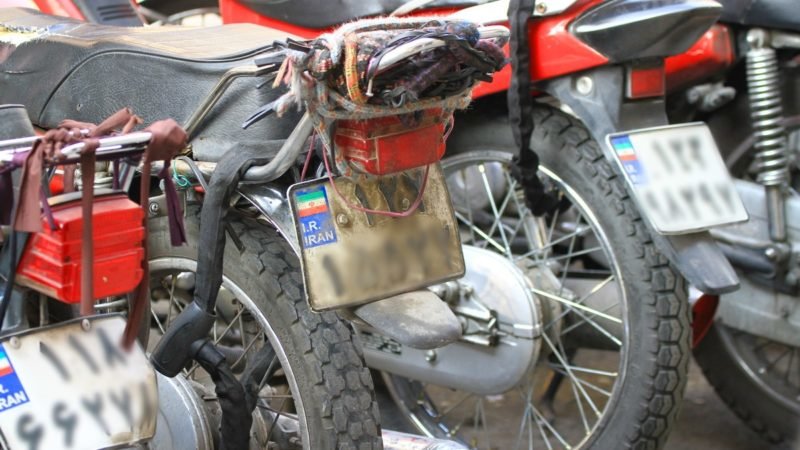25,000 carbureted motorcycles to be scrapped within 2 months

TEHRAN – Some 25,000 polluting carbureted motorcycles will be discarded by the next two months as per enforcement of clean air law, head of the national working group for air pollution mitigation affiliated to the Department of Environment (DOE) has announced.
“According to the clean air law, no license plate for carbureted-engine motorcycle should be issued unless a clunker carbureted motorcycle is scrapped,” ISNA quoted Vahid Hosseini as saying on Saturday.
The clean air law constituting 35 articles has been drawn up by the DOE as an integrated approach to curb air pollution, which was passed by the parliament on July 16, 2017. The law singles out inefficient vehicles, substandard fuels, industrial activities, and dust storms as the major sources of air pollution in the country and tasks different organizations with specific actions in line with the objective.
The main purpose of scrappage of numerous old motorcycles is to renovate and replace them with new motorcycles and encourage the residents to purchase electric motorcycle.
Last week, an important agreement was reached between Tehran Traffic Police, the Execution of Imam Khomeini's Order office, and all related bodies to help remove 25,000 clunker polluting motorcycles during the next two months, Hosseini stated.
The main purpose of scrappage of numerous old motorcycles is to renovate and replace them with new motorcycles and encourage the residents to purchase electric motorcycle, he added.
Carbureted motorcycles scrapping process has awaited implementation in recent years due to executive and legal problems, he noted.
He went on to say that motorcycle producers were obliged to scrap a carbureted motorcycle in exchange for the production of a new one.
In addition to discarding these motorcycles, the DOE is trying to offer the government in order to support the owners of clunker motorcycles to exchange their vehicles with low-emission ones, he highlighted, adding that Tehran Municipality will be also ready to cooperate in this regard.
“We hope that other metropolises of the country being hit by air pollution cooperate to scrap polluting motorcycles and encourage the citizens to use electric motorcycles, which helps the motorcycle industry to grow and opens up many job opportunities,” he concluded.
The national working group for air pollution mitigation, made a proposal to bring production of the pollutant carbureted-engine motorcycles to a halt some two years ago. The cabinet approved the proposal on June 22, 2016, which went into effect as of September 2016.
According to a report by the World Bank, motorcycles are the second largest contributor to PM in the capital, even before cars which greatly outnumber them. There are less than 1 million motorcycles in Tehran which contribute to about 12 percent of the total mobile PM emissions. On the other hand, with a total fleet of 3.37 million, or 80 percent of all vehicles, cars only account for about 3 percent of the city’s mobile PM pollution.
One of the main reasons behind their high contribution to emissions is that a large part of the fuel consumed in motorcycles burns incompletely. The Tehran motorcycle fleet consists mostly of carburetor-equipped motorcycles which are typically less fuel efficient and emit more emissions compared to newer, fuel injection technology.
FB/MQ/MG
